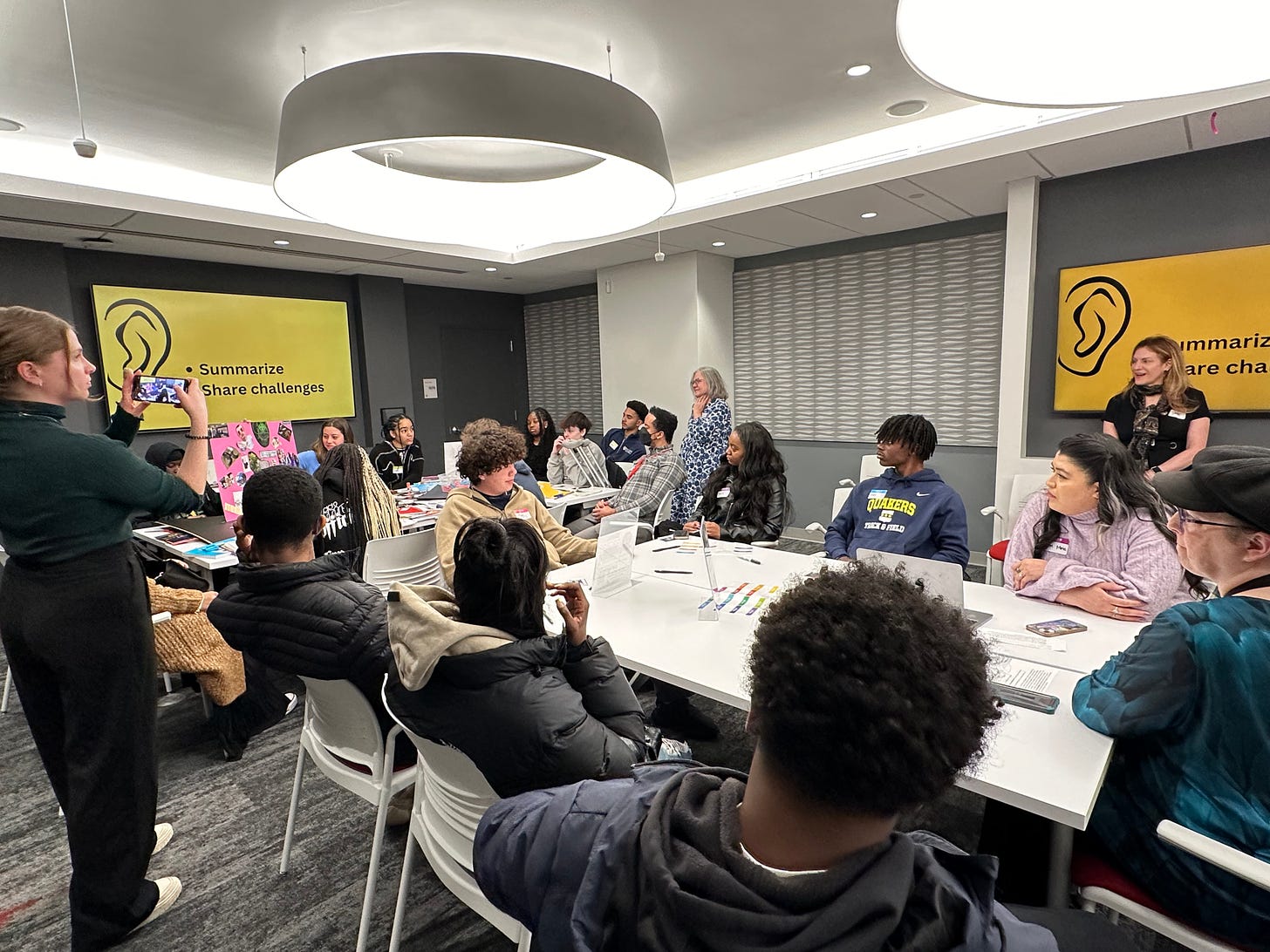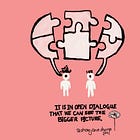Unlocking the Lost Art of Listening: Why We're Failing to Truly Hear and 5 Insights to Help
Because we all need some lessons on one of the most important skills in life
If this post resonates, please click the ♥️ above. I would love to hear from you.
“We are raising generations of children who’ve been brought up in “acoustically lousy” schools, who’ve learned not to listen, who’ve learned just to shout or to switch off. And I think that’s absolutely tragic. If we can reverse that, if we can teach children and ourselves how to listen, then we’d be creating a very different kind of world,” Julian Treasure, author of How to Be Heard.
We are not listening, at least not well.
And it’s not entirely our fault.
We spend up to a decade learning to read and more than that reading to learn. We teach writing at all levels of school. But there is little emphasis placed on speaking, and almost no attention on listening skills.
The typical student is graduated into a society where the chances are high that she will have to listen about three times as much as she reads. We're constantly told to listen, but we're not shown how to do it.
This post is about listening, inspired by School of Thought’s partnership with the non profit organization, Cortico, where they build AI tools aimed at augmenting human listening so we can raise underheard voices in schools, businesses and life.
The Big idea
The fact that some voices are underheard is deeper than just some people choosing not to listen. Many just don't know how to listen.
Schools don't treat listening as a teachable skill. With its central importance in almost everything we do, we need to spend more time building listening skills.
This week, we gathered across schools and sectors for the inaugural meeting of School of Thought. Co-created with partners at Cortico and University of the Arts, the gathering focused on Human Listening and Machine Learning. We asked everyone to think about what it means to be heard, and why listening could be challenging.
Some of the community challenges raised to really listening:
Power dynamics influence conversations. More here.
We try to multitask when listening instead of being present.1
When we think we already know, we shut people off.
There is a lot of noise everywhere.2
We all could use a refresher on asking questions.
A real lesson: we need collective learning experiences to steep ourselves in learning about listening and questioning and conversation. We need to take time to pause the rush to gain content and to power up the skills needed for constructive dialogue.
As we kick off our in real life School of Thought community, we’ve been thinking about the skill of listening, holding constructive conversations and connection. Impactful progress cannot happen unless we root ourselves in listening effectively- listening to ourselves and to each other. The community, both in schools and sectors, will be engaging in constructive conversation projects across settings, with a celebration to explore progress in June.
Making Big Ideas Usable
Raising awareness and putting into practice characteristics of good listening can help us all. The following section includes research based features of healthy listening along with resources and ideas to put them into practice.
Join US! “Visuals as, of, and for Learning,” April 5th at 3pm.
Invites will be sent to members’ (paid subscribers) emailboxes soon. Research, practice and inspiration. Details here. Subscribe now to join us!







